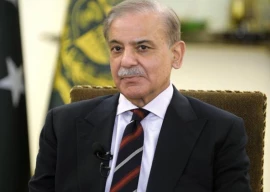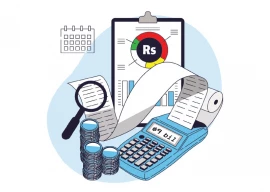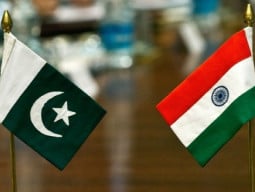1724839483-0/Untitled-design-(22)1724839483-0.jpg)
A nationwide strike is being observed by traders across Pakistan to protest the recent hike in electricity bills and the imposition of new taxes.
The strike, called by various trader associations in addition to the Jamaat-i-Islami, has led to the closure of business centres in major cities including Karachi, Lahore, and Islamabad.
In the capital, fears of protests prompted the closure of roads leading to the Red Zone using containers, while several commercial hubs like Aabpara Market and G-9 Karachi Company witnessed a complete shutter down.
The All Pakistan Anjuman Tajiran in Sindh voiced full support for the strike, leading to a complete halt of business activities in both small and large cities across the province.
Traders have rejected the tax increases and higher electricity bills, with similar actions seen in Peshawar where markets remained closed.
In Rawalpindi, major commercial centres, shopping malls, wholesale markets, and grain markets also observed the strike, although essential services like bakeries, sweet shops, grocery stores, medical stores, and petrol stations remained open.
Educational institutions and district courts in the city were not affected.
Police presence was intensified in various areas to maintain order.
In a related development, Jamat-e-Islami (JI), Jamiat Ulema-e-Islam Fazl (JUI-F), Pakistan Tehreek-e-Insaf (PTI), and the Awami National Party (ANP) have all supported the traders' cause.
Ajmal Baloch, president of the All Pakistan Anjuman Tajiran, and Kashif Chaudhry, chief of the Markazi Anjuman Tajiran, earlier said that if the government is earnest about engaging with business owners, it must first retract the 'Tajir Dost Scheme' notification.
They proposed that the government should target high-profile individuals for tax collection to alleviate the country’s financial troubles and reduce reliance on the IMF.
They also urged the government to avoid imposing additional taxes on the public, asserting that traders will not accept arbitrary tax demands.
They warned that the strike could be extended indefinitely if the government does not rescind the notification.
The traders also criticised the prime minister for admitting that the budget was influenced by the IMF, calling it highly embarrassing. Additionally, they highlighted that traders face high electricity costs while government officials and bureaucrats enjoy various benefits.
The strike extended to other major cities including Multan, Quetta, Gujranwala, Faisalabad, and several smaller towns, causing widespread disruption to daily life.

1724850841-0/Untitled-design-(5)1724850841-0-165x106.webp)












1724746120-0/Untitled-design-(2)1724746120-0-270x192.webp)










COMMENTS
Comments are moderated and generally will be posted if they are on-topic and not abusive.
For more information, please see our Comments FAQ